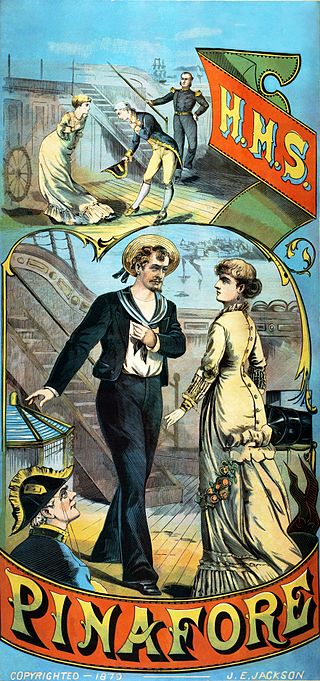
H.M.S. Pinafore; or, The Lass That Loved a Sailor is a comic opera in two acts, with music by Arthur Sullivan and a libretto by W. S. Gilbert. It opened at the Opera Comique in London on 25 May 1878, and ran for 571 performances, which was the second-longest run of any musical theatre piece up to that time. H.M.S. Pinafore was Gilbert and Sullivan's fourth operatic collaboration and their first international sensation.

The Yeomen of the Guard; or, The Merryman and His Maid, is a Savoy Opera, with music by Arthur Sullivan and libretto by W. S. Gilbert. It premiered at the Savoy Theatre on 3 October 1888 and ran for 423 performances. This was the eleventh collaboration of fourteen between Gilbert and Sullivan.

San Toy, or The Emperor's Own is a "Chinese" musical comedy in two acts, first performed at Daly's Theatre, London, on 21 October 1899, and ran for 768 performances. The book was written by Edward Morton, and the musical score was written by Sidney Jones with lyrics by Harry Greenbank and Adrian Ross. Additional songs were written by Lionel Monckton. The cast included Marie Tempest, Scott Russell, Huntley Wright and Rutland Barrington.

Born to Dance is a 1936 American musical film directed by Roy Del Ruth and starring Eleanor Powell, James Stewart and Virginia Bruce. It was produced and distributed by Metro-Goldwyn-Mayer. The score was composed by Cole Porter.
"Ding Dang" is a song by American rock band the Beach Boys from their 1977 album The Beach Boys Love You. It was written by Brian Wilson and Roger McGuinn during an impromptu jam session after Wilson had visited McGuinn's home to acquire amphetamines.
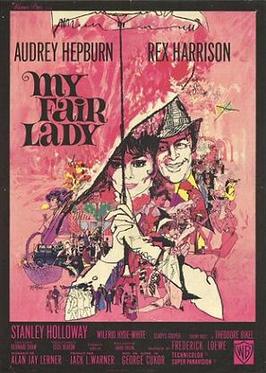
My Fair Lady is a 1964 American musical comedy drama film adapted from the 1956 Lerner and Loewe stage musical based on George Bernard Shaw's 1913 stage play Pygmalion. With a screenplay by Alan Jay Lerner and directed by George Cukor, the film depicts a poor Cockney flower-seller named Eliza Doolittle who overhears a phonetics professor, Henry Higgins, as he casually wagers that he could teach her to speak English so well she could pass for a duchess in Edwardian London or better yet, from Eliza's viewpoint, secure employment in a flower shop.

The Shop Girl was an Edwardian musical comedy in two acts written by Henry J. W. Dam, with lyrics by Dam and Adrian Ross and music by Ivan Caryll, and additional numbers by Lionel Monckton and Ross. It premiered at the Gaiety Theatre in London in 1894 and ran for an extremely successful 546 performances. Its cast included Seymour Hicks, George Grossmith Jr., Arthur Williams, Edmund Payne, and Ellaline Terriss. It soon played in New York and was successfully revived in London in 1920.
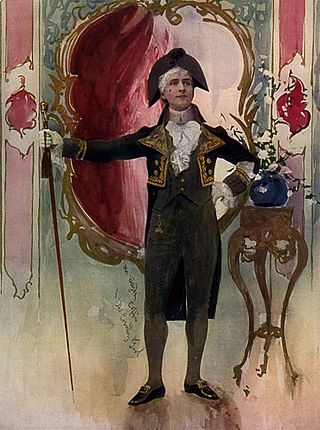
A Country Girl, or, Town and Country is a musical play in two acts by James T. Tanner, with lyrics by Adrian Ross, additional lyrics by Percy Greenbank, music by Lionel Monckton and additional songs by Paul Rubens.
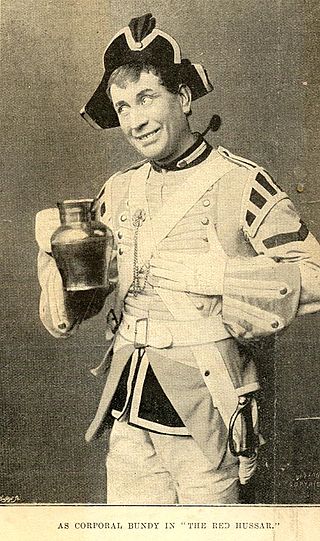
The Red Hussar is a comedy opera in three acts by Edward Solomon, with a libretto by Henry Pottinger Stephens, concerning a young ballad singer who disguises herself as a Hussar to follow her penniless beloved to France. By a feat of gallantry, she saves his life and is promoted to the rank of sergeant. It turns out that she is a rich heiress, and all ends happily.
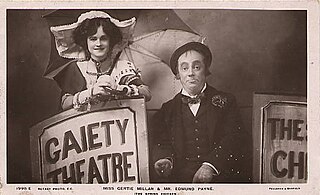
The Spring Chicken is an Edwardian musical comedy adapted by George Grossmith, Jr. from Coquin de Printemps (1897) by Jaime and Duval, with music by Ivan Caryll and Lionel Monckton and lyrics by Adrian Ross, Percy Greenbank and Grossmith. The story takes place in Paris and Château de Malmaison.

Miss Hook of Holland is an English musical comedy in two acts, with music and lyrics by Paul Rubens with a book by Austen Hurgon and Rubens. The show was produced by Frank Curzon and opened at the Prince of Wales Theatre on 31 January 1907, running for a very successful 462 performances. It starred Harry Grattan and Isabel Jay.

The Beauty of Bath is a musical comedy with a book by Seymour Hicks and Cosmo Hamilton, lyrics by C. H. Taylor and music by Herbert Haines; additional songs were provided by Jerome Kern, F. Clifford Harris (lyrics) and P. G. Wodehouse (lyrics). Based loosely on the play David Garrick, the story concerns a young woman from a noble family, who falls in love with an actor. She then meets a sailor who appears identical to the actor and mistakes him for the latter. Her father objects to a marriage with the actor, but when it turns out that she really loves the sailor, all objections fall away.

Rip Van Winkle is an operetta in three acts by Robert Planquette. The English language libretto by Henri Meilhac, Philippe Gille and Henry Brougham Farnie was based on the short stories "The Legend of Sleepy Hollow" (1820) and "Rip Van Winkle" (1819) by Washington Irving after the play by Dion Boucicault and Joseph Jefferson.
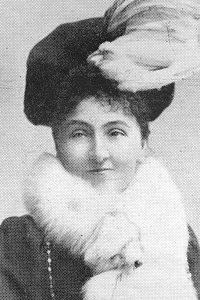
Louie Henri, Lady Lytton was an English singer and actress, best known for her many roles in the Savoy Operas with the D'Oyly Carte Opera Company. She married Henry Lytton, who eventually became the company's longstanding principal comedian.

Golden Dawn is a 1930 Warner Bros. American pre-Code musical operetta film directed by Ray Enright that was photographed entirely in Technicolor. It stars Vivienne Segal, Walter Woolf King and Noah Beery.
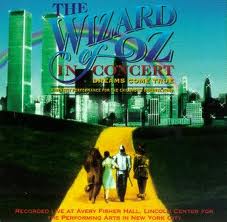
The Wizard of Oz in Concert: Dreams Come True is a 1995 television musical performance based on the 1939 film The Wizard of Oz. The book and score of the film were performed on stage at Lincoln Center to benefit the Children's Defense Fund. The concert featured guest performers including Jackson Browne as the Scarecrow, Roger Daltrey as the Tin Man, Natalie Cole as Glinda, Joel Grey as the Wizard, Jewel as Dorothy, Nathan Lane as the Cowardly Lion, Debra Winger as the Wicked Witch, and Lucie Arnaz as Aunt Em. The Boys Choir of Harlem appeared as the Munchkins, and Ry Cooder and David Sanborn performed as musicians.

Arthur Williams was an English actor, singer and playwright best remembered for his roles in comic operas, musical burlesques and Edwardian musical comedies. As a playwright, Williams wrote several farces as well as some dramas.
Monte Carlo is an Edwardian musical comedy in two acts with a book by Sidney Carlton, music by Howard Talbot and lyrics by Harry Greenbank. The work was first performed at the Avenue Theatre in London, opening on 27 August 1896. The New York production, which opened on March 21, 1898, at the Herald Square Theatre, was directed by Frank Smithson, who also played General Boomerang.

Dandy Dick Whittington was an opéra bouffe in two acts, written by George Robert Sims and composed by Ivan Caryll, based on the folktale Dick Whittington and His Cat. In this version, Dandy Dick performs in a circus and loves the owners' daughter. The circus goes to Siam, where Dick unexpectedly receives a high office and marries his sweetheart. The opera premiered at the Avenue Theatre in London on 2 March 1895 and closed on 13 July 1895. It starred May Yohé as Dick Whittington, Ethel Haydon as Alice, and Henry Wright as Larry O'Brannagan. The conductor was Landon Ronald.
Emma Chambers (1848–1933) was an English mezzo-soprano who was popular in Australia.


















